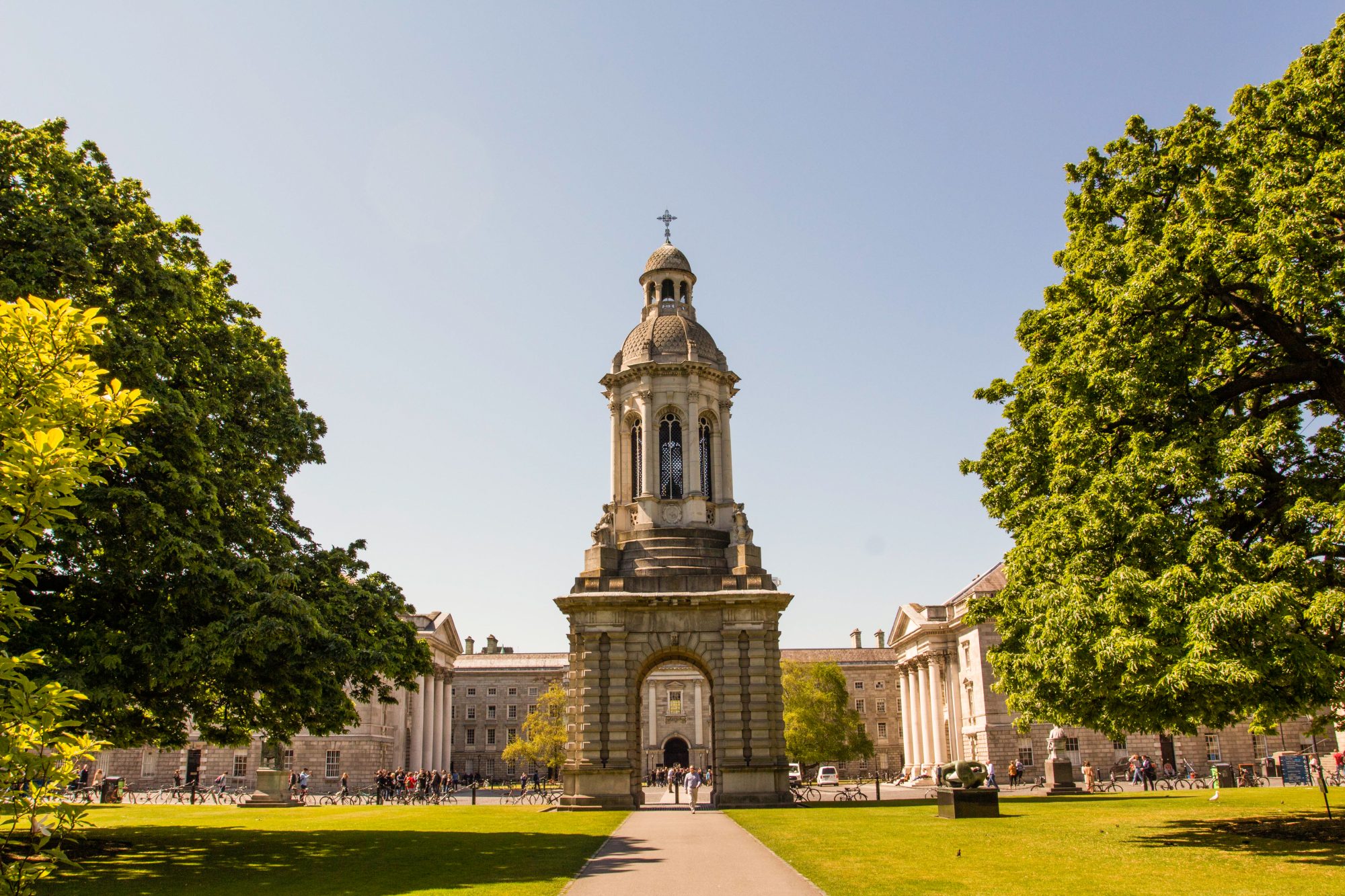Three Trinity students have won a €50,000 investment fund for their winning entrepreneurial pitch. Their enterprise, Biological & Optical Prevention (BOP), was pitched at the launch of the Trinity Business Entrepreneurial Ecosystem.
The students designed a product which changes colour to indicate germs present on a surface, and then eliminates them and disinfects the area. The product is designed to prevent and treat infections which may be contracted while in a healthcare facility, such as influenza virus.
TheStartUp.Com, a platform supporting entrepreneurs from business design to investment, funded the investment of €50,000 which was given to the three students. The team behind BOP consists of Paul Allan, third year Computer Science and Business; Sinéad McAleer, second year Computer Science and Business; and David Ola, second year Human Genetics.
Paul Allan, founder of BOP, said that “the startup-centric ecosystem within Trinity played a fundamental role in our development as we have been pushed to think ‘outside the box’ in our modules”. Allen continued: “BOP would not have been able to grow as rapidly as [it has] without the support of Trinity.”
BOP team member Sinéad McAleer explained that winning the competition has been a “great boost to our teams confidence, especially as [they] were the only undergraduate team competing”. McAleer explained that BOP will use the €50,000 investment to developing the chemical and tech aspects of the enterprise.
The enterprise was pitched as part of the inaugural Demo Day, which was organised by the Trinity Business School. The day marked the launch of the Trinity Business Entrepreneurial Ecosystem. The project intends to develop connectivity across College and Dublin city between students, staff, investors, and service providers.
The Dean of Trinity Business School, Professor Andrew Burke, explained that the initiative seeks to “connect relevant stakeholders in Dublin with Trinity Business School students who are working on new business ventures, providing them with mentorship and funding opportunities”. It will provide students and stakeholders “the opportunity to meet regularly and work on the ideation and development of new business ventures,” Burke continued.
Dr Giulio Buciuni, Director of the MSc Entrepreneurship at Trinity Business School, noted that Trinity Business School wants to “create a top tier entrepreneurial ecosystem for Dublin” and that “Demo Day is the first step of an ambitious project which we believe can pave the way for the creation of a new generation of successful businesses in Ireland”.
Seven shortlisted teams pitched entrepreneurial ideas throughout Demo Day. The teams represented both undergraduate and postgraduate Trinity Business students. Pitches featured protein alternatives made from worms, virtual reality solutions for art sales, financial planning tools for the millennial generation, and Irish vegan food products.
Unexpectedly, the judges picked a runner-up due to the high standard within the competition. Anika Riley and Sebastian Khün were chosen as runners-up with their enterprise Work Smarter, which offers a toolbox for small business owners and freelancers that combines tools for work management and an escrow payment and contract solution.
The BOP and Work Smarter teams will attend the Launchbox 2018 programme this summer. Launchbox is an accelerator programme which supports student entrepreneurs in Trinity to develop their business ideas.
Pitchbook, an independent assessor which researches and analyses companies, investors, and service providers, ranked Trinity as the best university in Europe for producing entrepreneurs. Previous enterprises include TicketChain, a ticketing platform designed by Business, Economics, and Social Studies (BESS) student Jake McGwire, which placed second in the Trinity Entrepreneurial Society’s Dragons’ Den competition in 2017 and participated in the 2017 Launchbox programme.
Fin Murphy, co-founder of TheStartUp.com, which funded the €50,000 investment, expressed “delight” to be able to support Trinity in “ongoing programme to make the College a global centre of excellence for entrepreneurship”. Murphy noted that the “high-level support from University and faculty leadership as well as such opportune access to investors, mentors and service providers” are conducive to the success of entrepreneurship arising in College.







